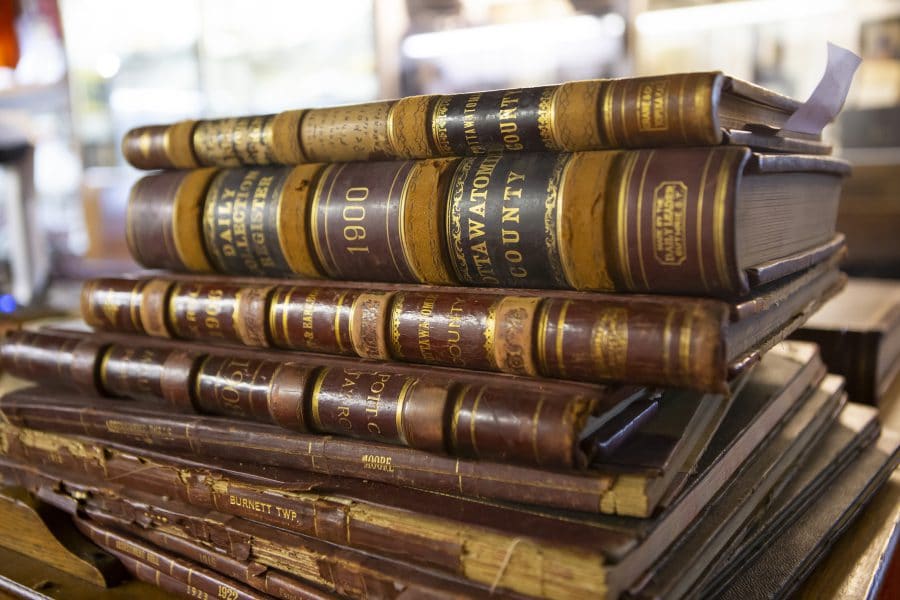Ten years ago, Citizen Potawatomi Nation’s Cultural Heritage Center saved more than 1,000 Pottawatomie County historical ledgers from destruction. They span over a century and include records before and after Oklahoma statehood. The CHC recently donated the collection of books and preservation equipment to the Pottawatomie County Historical Society to ensure an important portion of county history is available for future generations.

“Kudos to CPN because the Oklahoma History Center decided to microfilm what they wanted and throw the rest away, and CPN chose to take the books,” said Pottawatomie County Historical Society Director, Ken Landry. “We wouldn’t have them if it hadn’t have been for CPN. They’d be demolished.”
Knowing how important the records are to preserving Potawatomi and county history, the CHC safely stored the books in its archives until an opportunity with the historical society manifested.
“We felt that the history and most of the records that we had really does fall more within the Pottawatomie County Historical Society’s mission and objective of following the big picture history of Pottawatomie County, so we felt like it was a great partnership,” said Dr. Kelli Mosteller, CHC director and Pottawatomie County Historical Society board member.
The donation and partnership with the Pottawatomie County Historical Society allows the CHC to continue working toward its mission without taking precedence over the day-to-day operations of preserving Potawatomi history.
“It goes back to our bigger mission of being a caretaker for the history and culture of this area,” Dr. Mosteller said. “So many of our Tribal members are intertwined in the bigger history.”
Digitizing
“County records are a particular kind of civic documentation that may not be the most exciting on its surface, but if you’re really trying to understand the community and do genealogical research and things like that, those are really necessary documents to be able to track someone throughout their life,” Dr. Mosteller said.
The historical society changed its boardroom to a digital scanning room fit with three scanners, including one donated by the CHC. It also has dedicated staff, interns and volunteers to help complete the hefty task of recording more than 1,000 ledgers.
“CPN gave us the scanner so we could complete the project, and the project benefits everybody in the county,” said Mark Schneiter, Pottawatomi County Historical Society board president. “It won’t only benefit our museum. … It extends everybody’s resources.”
With two scanners but three volunteers and interns devoted to working on making digital copies, the CHC donated a third scanner so the historical society could take full advantage of their time.
Staff and volunteers started with the earliest books first, making digital copies of each page within the legers. Landry said although the project will take years to finish, it will make researching family and historical data easier through optical character recognition once complete.
“You’ll be able to literally go in to all those thousands of books and type your great-grandfather’s name, and it would pop up every book he’s in, whether land deeds — anything that had to do with the county, say tax rolls, will pull right up,” Landry said.
The CHC is receiving a digital copy of every document scanned, and CPN members and CHC visitors will also have an opportunity to view the records in the Tribe’s database.
